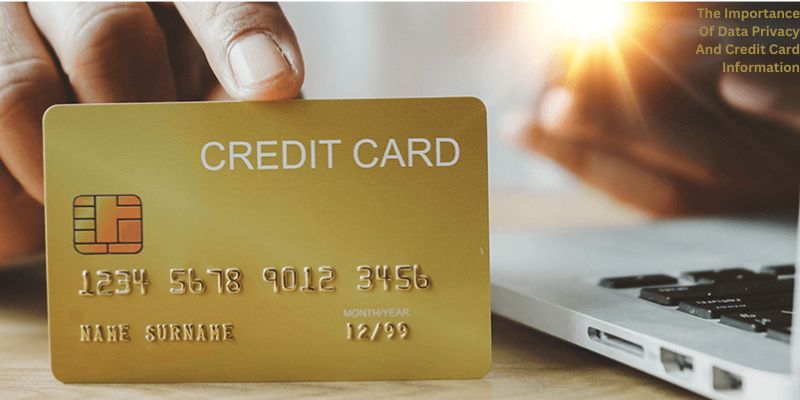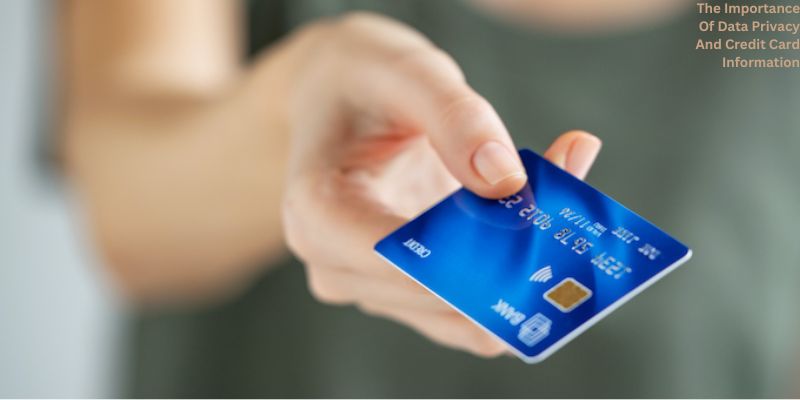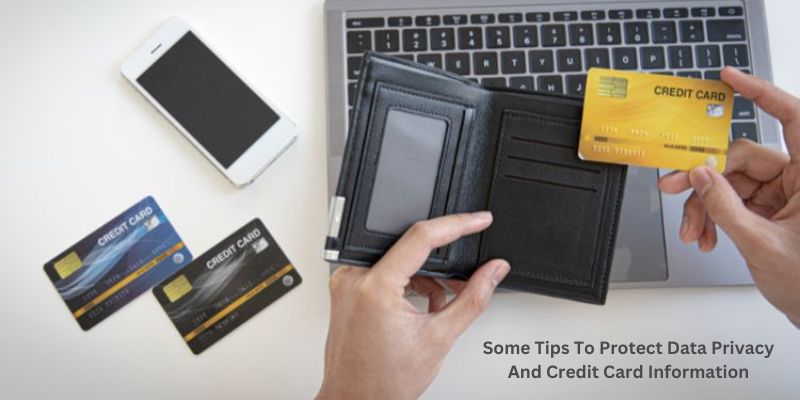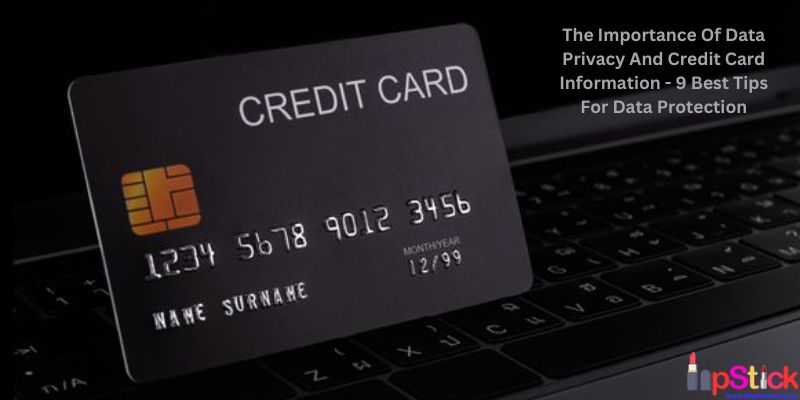In the current digital era, we are continuously traversing a large terrain of sensitive data and personal data. From online shopping to social media platforms, our credit card information is at the forefront of our digital footprint. With cyber threats and data breaches on the rise, it’s vital to understand the importance of data privacy and the measures we can take to protect our sensitive financial details. In this blog post, lipstickbr.com will delve into the complexities of data privacy and credit card information in an increasingly interconnected world. So, let’s embark on this journey together and discover the necessary steps to ensure the security of our personal and financial data with some useful information below!.
1. The Importance Of Data Privacy And Credit Card Information

Simply put, cash is better than credit cards in keeping people out of our lives. The places where we shop and eat are where it all begins. When we make a purchase with a credit card, the merchant has access to our first and last names. When paired with our zip code—which may be asked for at the register or assumed since most transactions happen close to where people live—this information allows the merchant to learn a lot more about us.
The retailer may then be able to obtain our phone number, email address, and postal address through “data appending” services. This therefore makes it possible for a merchant to access the databases of the massive data broker business and discover everything about us, including our interests, hobbies, marital status, and medical issues, as well as our demographics, job, and marital status. A store may include our personal information, including information about our transactions, in a “data cooperative” where it will be made available to all of the other participating businesses.
It is true that there are more ways for retailers to keep tabs on customers and their purchases, including cash transactions. These additional methods include loyalty programs, Bluetooth monitoring, and facial recognition. Additionally, it is theoretically feasible for currency to be tracked via serial number readers, but as far as we are aware, there is no infrastructure in place to support it. Although anonymity cannot be guaranteed, cash still protects privacy far more than credit cards.
Data privacy and social security numbers – Electronic payment methods compromise privacy in large part because they add a middleman. When a middleman joins the process, that business frequently learns about the transaction and, because to our lax privacy rules, is free to use the information anyway it sees appropriate.

Today, the dominant intermediaries in the majority of non-cash transactions are the oligopolistic credit card firms (Visa controls over 60% of the credit and debit card industry, followed by MasterCard with 25%, American Express with 13%, and Discover with 2%). Additionally growing popularity are mobile applications like Apple Pay, Venmo, and Square.
Data privacy and social security numbers – Companies are allowed to sell customers’ financial information, including application-related personal information and credit card data like the date, amount, and receiver of transactions, to whoever they like under GLB.
Federal rules state that customers have no privacy unless they actively “opt out” of this sharing by following the same procedure with every financial service provider that could hold their personal information. That implies that these businesses may be gathering a ton of information about our lives, including how much we spend on dining out, traveling, making charitable or political contributions, shopping at liquor stores, using sex services, and so on. Of course, when paired with additional data, that type of knowledge becomes much more potent and illuminating.
Data privacy and social security numbers – Even with this opt-out choice, users cannot prevent credit card firms and issuing banks from sharing the information with their financial affiliates and financial “joint marketers,” a nebulous word that creates a significant privacy protection gap. If you are interested in similar topics, you can also refer to the article Data Privacy And Genetic Information
2. Some Tips To Protect Data Privacy And Credit Card Information

Data privacy and social security numbers – When utilized properly, a credit card functions similarly to an interest-free loan by allowing you to buy now and pay later. Although there are many different credit card options, some of which may come with benefits or exclusive promotions, their capacity to offer you fraud protection makes them a safer alternative to cash.
Even if using a credit card is convenient, it’s crucial to keep in mind that scammers are always looking for credit card numbers, passwords, or PINs. Please be vigilant and safeguard your personal data. The following advice can assist you in protecting your credit card accounts:
- Protect your credit cards right now.
- Be discreet with your account number.
- Keep your knowledge up to date.
- Take good care of your receipts.
- Protect your networks and devices.
- Ensure your online safety. (Know your merchant, add an extra layer of security, and avoid using free public WiFi when shopping, transacting money, or even just checking your accounts.)
- Regularly check your account.
- If there are any disputed charges, contact your credit card provider right once.
- Report missing cards and fraud suspicions immediately.
Conclusion
In conclusion, data privacy and credit card information are of utmost importance in today’s digital age. The increasing prevalence of cybercrime and identity theft highlights the need for individuals and organizations to prioritize the security of personal and financial data. By implementing robust security measures, educating users about best practices, and enforcing strict privacy policies, we can safeguard sensitive information and mitigate the risks associated with data breaches. Ultimately, the protection of data privacy and credit card information is not just a legal and ethical obligation, but a necessary step towards building trust in the digital ecosystem.

